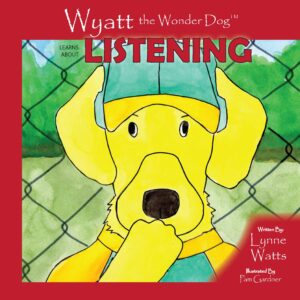The Power of Listening: Teaching Kids to Hear with Their Ears, Eyes, and Heart
Listening is one of the most important skills for kids to learn to be successful students, employees and ultimately successful in any relationship. Disagreements and miscommunication are often the result of poor listening. It is more than just being quiet while someone else talks—it’s an essential life skill that helps children build stronger relationships, learn effectively in the classroom, and develop empathy for others. Elementary school is the perfect time to teach students what it means to be a good listener and to practice these skills in a supportive environment.
What Does It Mean to Be a Good Listener?
A good listener:
-
Pays attention to both words and body language.
-
Shows interest through eye contact and facial expressions.
-
Responds appropriately with comments, questions, or summaries.
-
Respects others by waiting their turn to talk.Benefits of Good Listening
When students practice good listening, they:
-
Improve their learning and memory by understanding directions and content.
-
Build stronger friendships because peers feel heard and valued.
-
Develop empathy by recognizing emotions in others.
-
Strengthen their communication skills and confidence.
Body Language That Shows Good Listening
Students can demonstrate good listening by:
-
-
Facing the speaker with their body turned toward them.
-
Maintaining eye contact without staring.
-
Nodding or showing appropriate facial expressions.
-
Sitting still and keeping hands and feet calm.
-
Avoiding interruptions until the speaker is finished.
-
Being Sensitive to Listening Differences in Neurodiverse Students
Not all students will demonstrate listening in the same way. Neurodiverse students may process information differently, and their listening behaviors may not always match traditional expectations. For example, some students may:
- Listen best while doodling, fidgeting, or looking away rather than making eye contact.
- Need extra processing time before responding.
- Benefit from visual supports, repetition, or written directions to complement verbal listening.
- Prefer smaller group discussions over whole-class conversations to reduce distractions.
Counselors can help by teaching classmates that listening doesn’t always look the same for everyone and by modeling acceptance of these differences. Encouraging multiple ways to show listening ensures that all students feel included and valued.
School Counselor Resource
Wyatt the Wonder Dog Learns about Listening

Wyatt the Wonder Dog is back in this delightful story that teaches children why listening is important and how to become good listeners. Children will relate to Wyatt’s experience of missing out on the fun and making everyone late for Grandma’s party. They’ll learn that being a good listener takes practice, but it’s so worth it in the end!
My students love the Wyatt the Wonder Dog Series and the new book is a great addition. They learn that not only is listening important to being a good student, it is also important in being a good friend!
~Lindsay Tucker, School Counselor, Jo Byrns Elementary School,
Cedar Hill, TN
